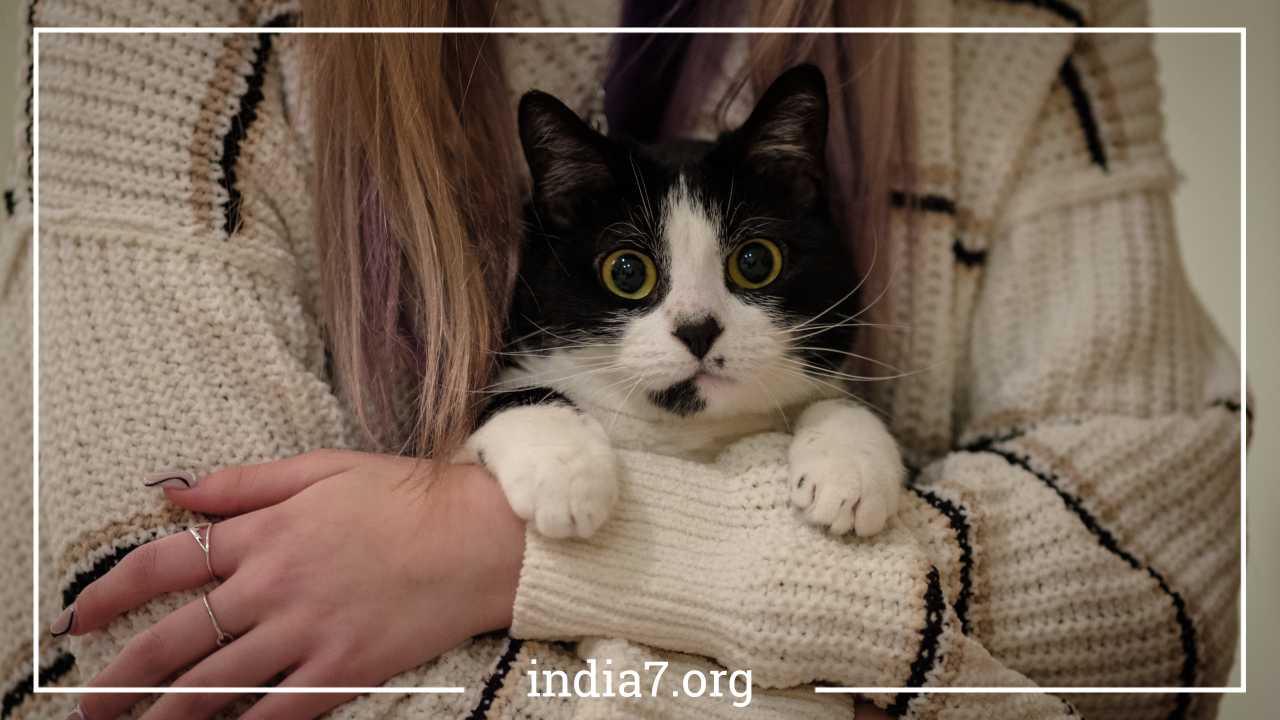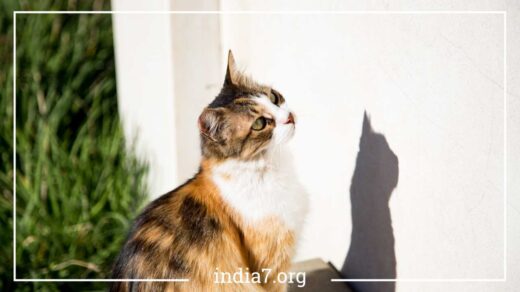Cats Bonding With Their Owners: Understanding the Complex Feline-Human Relationship

Cats Bonding With Their Owners
Cats have long been known for their enigmatic and independent nature. They are often considered aloof and solitary animals, leading many to believe that they do not form strong bonds with humans. However, if you’ve ever had the privilege of sharing your home with a cat, you likely know that this stereotype couldn’t be further from the truth. Cats are not only capable of forming deep and meaningful bonds with their human companions, but they often do so in unique and fascinating ways.
In this comprehensive exploration, we will delve into the intricate world of cats bonding with their owners. We’ll discuss the various factors that influence these bonds, the signs that a cat is seeking connection, and the theories proposed by experts to explain this captivating phenomenon. By the end of this discussion, you’ll have a profound understanding of the depth of the feline-human relationship.
1: The Complex Nature of Cats
Before we delve into the subject of cat-human bonding, it’s essential to understand the intricate nature of cats themselves. Cats belong to the family Felidae, which encompasses a wide range of species, from small domestic cats to majestic big cats like lions and tigers. Despite the diversity within this family, certain characteristics are common to all cats, influencing their behavior and relationships.
1.1 Independence and Solitude
Cats are renowned for their independence. Unlike dogs, which have been bred for thousands of years to work alongside humans, cats have retained much of their wild instincts. In the wild, they are solitary hunters, and this inclination towards self-sufficiency is still present in domestic cats. They often require alone time and may retreat to secluded spots within the home.
1.2 Territorial Behavior
Cats are territorial creatures. They establish and defend their territories, which can include your entire home. Understanding their territorial instincts is crucial in comprehending how they form bonds with their human companions. Cats view their owners as part of their territory and may exhibit behaviors to mark their presence, such as rubbing their scent glands against you or objects in the home.
1.3 Communication through Body Language
Cats communicate primarily through body language. Understanding their cues is essential in recognizing their emotional states and their desire for interaction. Common signals include purring, kneading, grooming, and specific postures. By observing these behaviors, you can better interpret your cat’s intentions and feelings.
2: Signs of Cat-Human Bonding
Contrary to the belief that cats are aloof and uninterested in forming bonds with their human owners, they exhibit various signs when they are seeking connection and have already formed strong bonds.
2.1 Seeking Attention
One of the most apparent signs of a cat wanting to bond is seeking attention. Cats may hop onto your lap, follow you around the house, or nudge you for pets and affection. They might even vocalize to grab your attention. When a cat actively seeks your company, it’s a clear indication that they are interested in strengthening their bond with you.
2.2 Cuddling and Snuggling
Cats often express their affection through physical closeness. They may snuggle with you while you’re watching TV, reading a book, or sleeping. Curling up beside you or even on your chest is a way for them to feel safe and connected to you.
2.3 Purring
Purring is perhaps one of the most distinctive signs of a cat’s affection. While cats do purr for various reasons, such as contentment and stress relief, they often purr when they are bonding with someone. It’s a soothing sound that can foster a sense of connection between cat and owner.
2.4 Grooming
Mutual grooming is another behavior that signifies a strong bond. Cats groom each other as a sign of trust and social bonding. If your cat licks you or allows you to groom them, it’s a clear indication that they see you as part of their social group.
2.5 Following You Around
Cats that follow their owners from room to room are displaying a desire for companionship. They want to be where you are, and this behavior is often seen in cats with strong bonds to their owners.
2.6 Bringing You “Gifts”
Cats sometimes bring their owners “gifts” in the form of prey they’ve caught, such as mice or birds. While it may not be the most pleasant gesture for humans, this behavior is rooted in the cat’s instinct to provide for its social group, which includes you.
3: Theories on Why Cats Bond with Humans
The question of why cats form bonds with specific humans has intrigued researchers, veterinarians, and cat lovers for years. Several theories have been proposed to explain this phenomenon, although none offer a definitive answer. Let’s explore some of these theories.
3.1 Individual Characteristics
One prevalent theory suggests that cats choose to bond with humans based on individual characteristics. This could include a person’s demeanor, voice, or how they interact with the cat. For instance, a cat may be drawn to someone who is gentle, patient, and responsive to their needs. Conversely, they might avoid individuals who are loud or aggressive.
3.2 Survival Instincts
Another theory revolves around the cat’s natural survival instincts. Cats are known for their ability to adapt to various environments, and forming a bond with a human could be a strategic move to ensure their well-being. By attaching themselves to a reliable source of food and protection, cats increase their chances of survival.
3.3 Psychic Aura
A more unconventional theory proposes that cats bond with humans due to a “psychic aura” or energy field. According to this idea, some individuals emit an energy that resonates with a cat’s, creating a sense of comfort and connection. Conversely, if a person’s energy feels negative or threatening to the cat, they may choose to avoid them.
3.4 Socialization and Early Experiences
Early socialization and experiences during kittenhood can play a significant role in a cat’s ability to bond with humans. Cats that have positive interactions with people from a young age are more likely to form strong bonds later in life. Conversely, cats with traumatic or negative experiences may be hesitant to bond with humans.
3.5 Mutual Benefits
Cats may also form bonds with humans because of the mutual benefits it provides. Cats seek attention, companionship, and affection from their owners, while humans often derive emotional support and companionship from their feline friends. This symbiotic relationship can strengthen the bond over time.
4: The Role of Time and Patience
Building a strong bond with your cat often requires time and patience. Cats are known for their independent nature and can be selective in their choice of companions. Therefore, it’s essential to understand that forming a deep connection with your feline friend may not happen overnight.
4.1 Spending Quality Time
One of the most effective ways to strengthen the bond with your cat is by spending quality time together. This includes interactive play sessions, cuddling, grooming, and simply being present in their company. The more positive experiences you share, the stronger the bond will become.
4.2 Consistency in Care
Consistency in care is crucial for cats. Feeding, grooming, and providing a clean litter box on a regular schedule can create a sense of security and routine for your cat. When they can rely on you for their basic needs, it fosters trust and strengthens the bond.
4.3 Respect Their Boundaries
While it’s essential to spend time with your cat, it’s equally important to respect their boundaries. Cats may need alone time, and forcing interaction when they’re not in the mood can be counterproductive. Pay attention to their cues and let them initiate contact when they’re ready.
4.4 Positive Reinforcement
Positive reinforcement techniques, such as treats and praise, can be used to reward your cat for desired behaviors. This can help create positive associations with you and strengthen the bond. For example, you can offer treats when your cat comes when called or uses the litter box.
4.5 Understanding Their Individuality
Each cat is unique, and understanding your cat’s individual preferences and quirks is essential. Some cats are more outgoing and affectionate, while others may be more reserved. Tailoring your approach to their personality can go a long way in building a strong bond.
5: The Influence of Cat Breeds
It’s important to note that different cat breeds may have varying tendencies when it comes to bonding with their owners. While individual personalities play a significant role, breed-specific traits can also influence the bonding process.
5.1 Affectionate Breeds
Certain cat breeds are known for their affectionate nature and strong desire for human interaction. For example, the Ragdoll and Siamese breeds are often praised for their social and affectionate behavior. These cats may bond quickly and deeply with their owners, seeking constant attention and companionship.
5.2 Independent Breeds
On the other hand, some cat breeds are more independent by nature. Breeds like the Maine Coon and Norwegian Forest Cat are known for their self-reliance and may not form bonds as readily as more affectionate breeds. However, they can still develop strong connections with patient and understanding owners.
5.3 Mixed-Breed Cats
It’s important to remember that many cats are mixed breeds, and their bonding tendencies can vary widely. Regardless of breed, mixed-breed cats are capable of forming strong bonds with their owners. In fact, the unique blend of traits they inherit can make them wonderfully individual and endearing companions.
6: The Mysterious Psychic Aura
The notion of a “psychic aura” or energy field influencing the bond between cats and humans may sound far-fetched to some, but it’s a concept that has gained attention among certain cat enthusiasts and alternative health practitioners. While it lacks scientific validation, it’s worth exploring for its intriguing implications.
6.1 Understanding the Psychic Aura
The concept of a psychic aura revolves around the idea that all living beings emit energy fields that can influence their interactions with others. According to proponents of this theory, cats are highly sensitive to these energy fields and can detect the presence of positive or negative energy.
6.2 Compatibility of Auras
In the context of cat-human bonding, it is believed that a cat’s aura must be compatible with that of their human companion for a strong bond to form. When the energies align, both the cat and the human may experience a sense of comfort, trust, and connection. Conversely, if the energies clash, the cat may choose to distance itself from the person.
6.3 Skepticism and Lack of Scientific Evidence
While the idea of a psychic aura influencing cat-human relationships is intriguing, it remains highly speculative and lacks empirical evidence. Skeptics argue that other factors, such as body language, scent, and behavior, are more likely to influence a cat’s perception of a person.
7: The Ongoing Mystery of Cat Bonding
Despite the numerous theories and observations surrounding cat-human bonding, the true nature of this phenomenon remains a captivating mystery. While some aspects can be explained by a cat’s natural instincts and individual personalities, there is no one-size-fits-all answer to why cats form bonds with specific people.
7.1 Individual Variability
One of the most significant challenges in unraveling the mystery of cat-human bonding is the immense individual variability among cats. Each cat is a unique being with its own temperament, preferences, and experiences. What works to bond with one cat may not be effective with another.
7.2 Evolving Understanding
Our understanding of cat behavior and the bond between cats and humans continues to evolve. Ongoing research, conducted by ethologists, veterinarians, and cat behaviorists, contributes to a deeper comprehension of the intricacies of these relationships. As our knowledge expands, we may gain more insights into the factors that influence cat-human bonding.
7.3 Unconditional Love
One thing that most cat owners can agree on is the profound and unconditional love they feel for their feline companions. Regardless of the mysteries surrounding cat-human bonding, the emotional connection between cats and their owners is undeniable. This bond often transcends words and scientific explanations, making it a cherished and enduring aspect of many people’s lives.
8: The Benefits of Cat-Human Bonding
The bond between cats and their human companions offers a multitude of benefits for both parties involved. Understanding these advantages can deepen your appreciation for the unique connection you share with your feline friend.
8.1 Emotional Support
Cats provide emotional support and companionship to their owners, especially in times of stress or loneliness. Their calming presence and soothing behaviors, such as purring, can have a therapeutic effect on human well-being.
8.2 Reduced Stress and Anxiety
Numerous studies have shown that interacting with cats can lead to reduced stress and anxiety levels. The act of petting a cat can release endorphins, which are natural mood enhancers, and lower cortisol levels, a hormone associated with stress.
8.3 Improved Mental Health
The companionship of a cat can have a positive impact on mental health. Cat owners often report feeling happier and more content due to their cat’s presence. Cats can offer a sense of purpose and responsibility, which can be particularly beneficial for individuals living alone.
8.4 Physical Health Benefits
Cats may also contribute to physical health. The act of playing with a cat can provide exercise and improve coordination, especially in children. Additionally, the calming effect of cat purring has been linked to lower blood pressure and a reduced risk of heart disease.
8.5 Decreased Feelings of Loneliness
Cats can help alleviate feelings of loneliness, making them valuable companions for individuals who live alone or have limited social interactions. Their presence provides a sense of connection and reduces isolation.
9: Nurturing the Cat-Human Bond
As a cat owner, there are several ways you can nurture and strengthen the bond with your feline companion. Here are some practical tips to enhance your relationship:
9.1 Patience and Understanding
Remember that building a bond with your cat takes time, especially if your cat is naturally more reserved. Be patient and allow your cat to set the pace for interaction. Respect their boundaries and cues.
9.2 Quality Time
Set aside dedicated time each day for quality interactions with your cat. Engage in play sessions, grooming, and cuddling. Cats thrive on routine, so establishing a regular schedule for these activities can be beneficial.
9.3 Positive Reinforcement
Use positive reinforcement to reward your cat for desired behaviors. Offer treats, praise, and affection when they exhibit behaviors that strengthen the bond, such as coming when called or using the litter box.
9.4 Enrichment and Play
Provide your cat with plenty of mental and physical stimulation through interactive toys, puzzle feeders, and climbing structures. Engaging in play and exploration together can create memorable bonding experiences.
9.5 Routine Care
Maintain a consistent routine for feeding, grooming, and providing a clean litter box. Cats appreciate predictability and feel secure when their basic needs are consistently met.
9.6 Veterinary Care
Regular veterinary check-ups are essential to ensure your cat’s health and well-being. Addressing any health issues promptly demonstrates your commitment to their care and can strengthen the bond.
10: The Unbreakable Connection
In conclusion, the bond between cats and their human owners is a complex and multifaceted phenomenon. While various theories attempt to explain why cats choose to form bonds with specific individuals, the true nature of this connection remains a mystery. It is likely a combination of individual personalities, early experiences, and the unique qualities of the cat-human relationship.
Regardless of the mysteries surrounding cat-human bonding, one thing is certain: the love and companionship shared between cats and their owners are profound and enduring. The unique ways in which cats seek attention, display affection, and provide emotional support make them cherished members of countless households around the world.
As a cat owner, nurturing this bond through patience, understanding, and quality time is a rewarding endeavor. The joy, comfort, and happiness that cats bring to our lives are immeasurable, and the unbreakable connection formed between cat and human is a testament to the enduring magic of these beloved feline companions.



